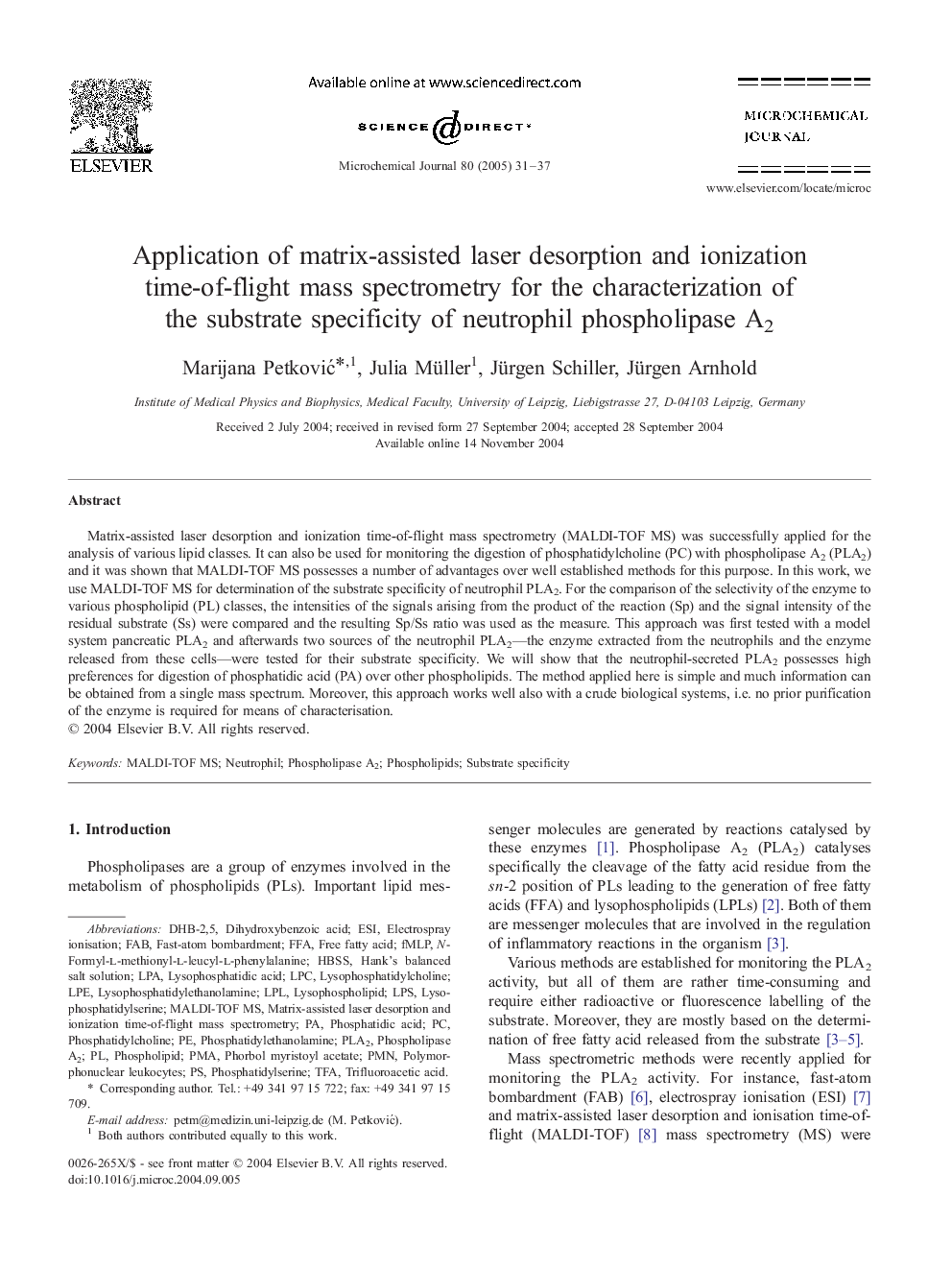| Article ID | Journal | Published Year | Pages | File Type |
|---|---|---|---|---|
| 10557267 | Microchemical Journal | 2005 | 7 Pages |
Abstract
Matrix-assisted laser desorption and ionization time-of-flight mass spectrometry (MALDI-TOF MS) was successfully applied for the analysis of various lipid classes. It can also be used for monitoring the digestion of phosphatidylcholine (PC) with phospholipase A2 (PLA2) and it was shown that MALDI-TOF MS possesses a number of advantages over well established methods for this purpose. In this work, we use MALDI-TOF MS for determination of the substrate specificity of neutrophil PLA2. For the comparison of the selectivity of the enzyme to various phospholipid (PL) classes, the intensities of the signals arising from the product of the reaction (Sp) and the signal intensity of the residual substrate (Ss) were compared and the resulting Sp/Ss ratio was used as the measure. This approach was first tested with a model system pancreatic PLA2 and afterwards two sources of the neutrophil PLA2-the enzyme extracted from the neutrophils and the enzyme released from these cells-were tested for their substrate specificity. We will show that the neutrophil-secreted PLA2 possesses high preferences for digestion of phosphatidic acid (PA) over other phospholipids. The method applied here is simple and much information can be obtained from a single mass spectrum. Moreover, this approach works well also with a crude biological systems, i.e. no prior purification of the enzyme is required for means of characterisation.
Keywords
ESIN-formyl-l-methionyl-l-leucyl-l-phenylalaninefMLPLPLPLA2PMNLPAHBSSlysophosphatidylethanolamineLPELPCTFALPSFFAPMAphospholipase A2Trifluoroacetic acidphosphatidic acidlysophosphatidic acidFree fatty acidfast-atom bombardmentSubstrate specificitydihydroxybenzoic acidFabphosphatidylcholinephosphatidylethanolaminePhosphatidylserinePhospholipidsPhospholipidpolymorphonuclear leukocytesLysophosphatidylcholineLysophosphatidylserinelysophospholipidMALDI-TOF MSHank's balanced salt solutionneutrophilelectrospray ionisation
Related Topics
Physical Sciences and Engineering
Chemistry
Analytical Chemistry
Authors
Marijana PetkoviÄ, Julia Müller, Jürgen Schiller, Jürgen Arnhold,
